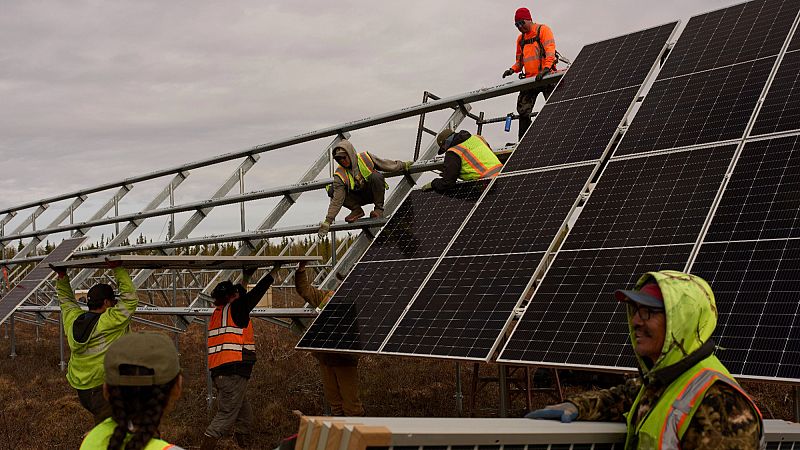
Solar and wind are now almost always the least expensive and fastest option for new energy generation, according to the UN.
In 2024, data reveals that additions to global renewable energy capacity reached 582 gigawatts - a nearly 20 per cent increase from 2023 and the highest annual expansion since records began.
Almost all new power capacity built around the world came from renewables, and almost every continent on Earth added more renewables capacity than fossil fuels last year.
Nearly three-quarters of the growth in electricity generated worldwide was from wind, solar and other green sources, according to the UN's multiagency report, called Seizing the Moment of Opportunity.
UN Secretary General Antonio Guterres said it shows “how far we have come in the decade since the Paris Agreement sparked a clean energy revolution.”
Further analysis from the International Renewable Energy Agency (IRENA) backs up the UN report, showing that over 90 per cent of new renewables worldwide produced electricity for less than the cheapest fossil fuel alternative.
‘Follow the money’ to see the renewables revolution
Guterres said in a speech on Tuesday, unveiling the two reports, that the world is “on the cusp of a new era” for energy.
“Fossil fuels are running out of road, and the sun is rising on a clean energy age. Just follow the money,” he added.
Around $2 trillion (€1.7 trillion) went into clean energy last year - $800 billion (€685 billion) more than fossil fuels and up over 70 per cent in 10 years.
New data released by the International Renewable Energy Agency (IRENA) on Tuesday shows that wind, solar and new hydropower were three of the cheapest electricity sources last year.
Solar is now 41 per cent cheaper than fossil fuels. Not long ago, it was four times the cost. Offshore wind is now also 53 per cent cheaper and is the most affordable source of new renewable energy.
For decades, emissions and economic growth rose together, the UN Secretary General added. Now, in many advanced economies, emissions have peaked, but growth continues.
In 2023 alone, clean energy sectors drove 10 per cent of global GDP growth and nearly 33 per cent of growth in Europe.
Rising geopolitical tensions, tariffs and material bottlenecks
Director-General of IRENA, Francesco La Camera, says this progress is not guaranteed, however.
“Rising geopolitical tensions, trade tariffs and material supply constraints threaten to slow the momentum and drive up costs.”
Though costs for renewables are expected to keep dropping as technology matures and supply chains strengthen, geopolitical shifts, including trade tariffs, raw material bottlenecks, and evolving manufacturing dynamics, particularly in China, pose risks that could temporarily raise costs.
In Europe, higher costs are likely to persist due to structural challenges like delays in permits for new projects and limited grid capacity.
Guterres also pointed out that fossil fuels still get almost nine times the government consumption subsidies as renewables.
“Countries that cling to fossil fuels are not protecting their economies, they are sabotaging them,” he said.
La Camera adds that to safeguard the gains of the renewable energy transition, the world must reinforce international cooperation, secure open and resilient supply chains, and create stable frameworks for policy and investment, especially in the Global South.
“The transition to renewables is irreversible, but its pace and fairness depend on the choices we make today.”







